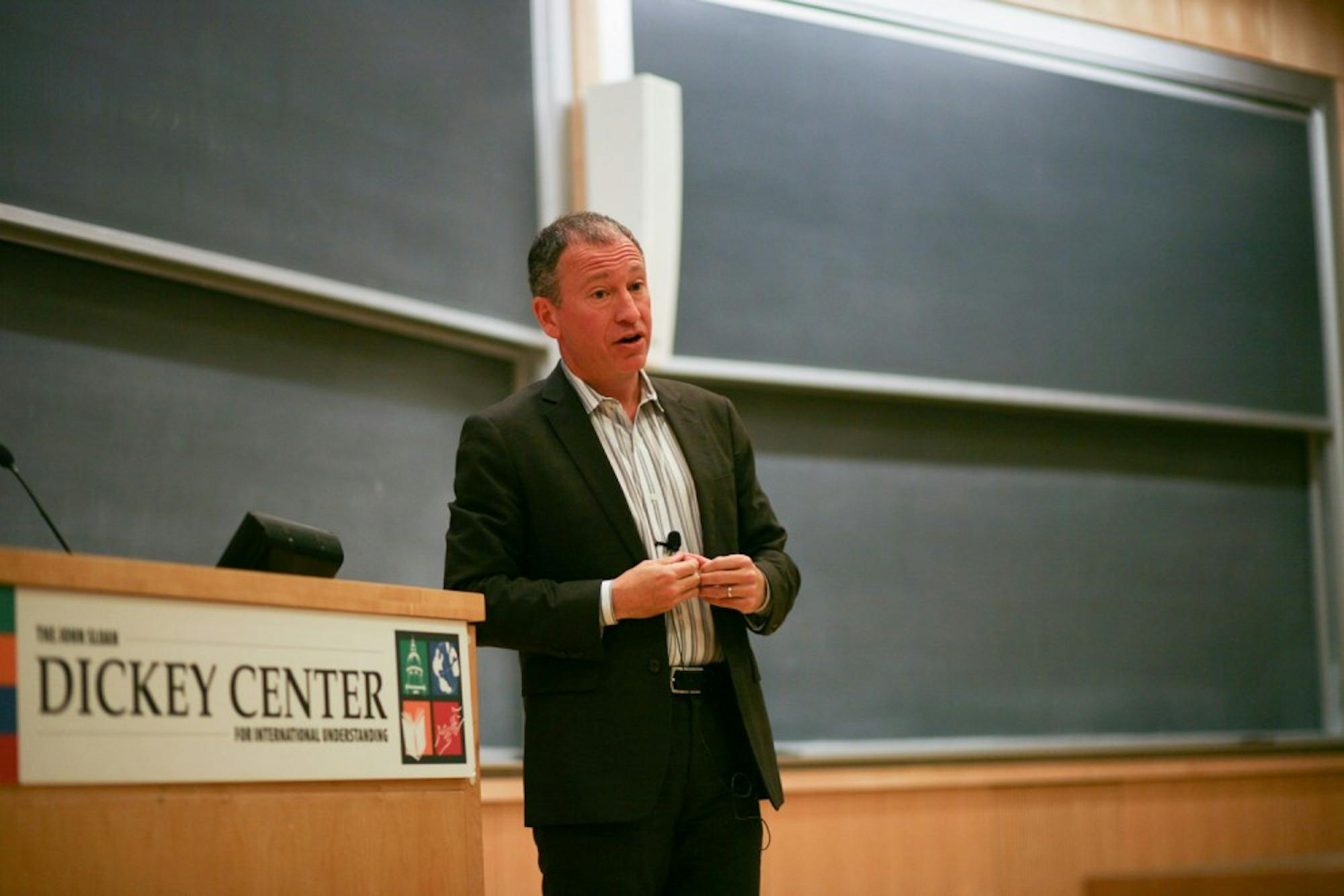Before the early 2000s, Jordan’s national television channel would only show videos of its king meeting with other heads of states, but due to the demand for real information, the channel has since expanded its offerings. George Washington University political science and international affairs professor Marc Lynch shared his optimistic vision for post-Arab Spring Middle Eastern nations and described the structural change of information dissemination brought upon by social media in a lecture in Haldeman on Monday.
Lynch noted the political status quo of Middle Eastern nations that were part of the Arab Spring, including Egypt, Syria, Tunisia and Libya. The region continues to experience ongoing violence and instability.
“A way to look at this and to not give into existential despair is to see what happened in this so-called Arab Spring in early 2011 as a unique and extraordinary moment in a process that was developing for a decade,” Lynch said.
The Arab Spring was not a random occurrence but resulted from gradual technological development in the region, he said.
The protests brought changes that were “so profound and so deep” that it is impossible for the affected countries to return to their former regimes. The changes helped Middle Eastern people realize that they do not need to rely on their government as an information source, Lynch said.
Previously, governments in the region firmly controlled people’s access to information and created an atmosphere that discouraged the public from speaking against the regimes. The introduction of satellite television in the early 1990s, however, changed this trend, Lynch said.
He said that Al Jazeera, a channel that originally broadcast local news in the Middle East, has contributed most significantly to this change by exposing the general population to information that the government hid.
“No longer does it matter that you are on this one neighborhood in Cairo and nobody else knows what is going on,” he said. “People in Alexandria, people in other side of Cairo, they see it too. This far predates the so-called Arab Spring. A lot of people think that the Arab Spring came out of nowhere but it’s not like that at all.”
Lynch said change continued as other private and public channels made more information about regional governments accessible to the public.
“Not because the Internet comes out of nowhere, but because it layers on top of these other changes where now you have first blogs, then Facebook, then Twitter and YouTube, all these other ways of sharing and disseminating information,” Lynch said. “All of this means that people can share information, they become almost completely independent from states as a source of information, and states fundamentally lose their ability to control or at least to shut off that flow of information.”
Exposure to previously concealed information altered public expectations, he said. Civilians can see the similarities between their own stories and the stories of those in other countries, inspiring them to promote change, Lynch said.
During the Arab Spring, civilians’ sense of common narrative was shattered, Lynch said. While the uprisings initially united the elites with ordinary people, by the end, participating nations faced different outcomes, destroying the sense of unity they had previously enjoyed. Sectarian movements intensified the disintegration and exacerbated people’s fears, making them more susceptible to manipulation by regimes, he said.
Social media also contributed to this disintegration, and regimes now use the media to spread propaganda, he said.
“If the big meta-message is ‘Don’t despair because the big structural changes are in direction of change,’ the smaller meta message is ‘Change does not mean change for the better,’” Lynch said.
Slok Carpenter ’16 appreciated Lynch’s positive outlook.
“You do get this whole doom and gloom expression — the world is going to end and everybody will kill each other — but it was nice to see that there still is a chance,” he said.
Lynch’s lecture, “After the Arab Spring,” was sponsored by the Dickey Center’s War and Peace Studies program.




